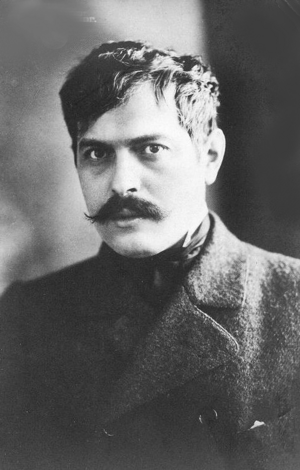Sándor Bródy (writer) facts for kids
Quick facts for kids
Sándor Bródy
|
|
|---|---|
 |
|
| Born | 23 July 1863 Eger, Hungary, Transleithania, Austria-Hungary |
| Died | 12 August 1924 (aged 61) Budapest, Hungary |
| Occupation | Writer, journalist |
| Nationality | Hungarian |
| Spouse | Izabella Rosenfeld |
| Partner | Margit Hunyady |
| Children | 6; including Sándor Hunyady and Iles Bródy |
| Relatives | Imre Bródy |
Sándor Bródy (born July 23, 1863, in Eger – died August 12, 1924) was a famous Hungarian author and journalist. He wrote many stories, novels, and articles. His works often showed real-life situations and challenges.
About Sándor Bródy
Early Life and Career
Sándor Bródy was born in Eger, Hungary. His family was Jewish. After finishing school in Eger, he decided to focus completely on writing.
From 1888 to 1890, he worked as an editor for a newspaper called Erdélyi Híradó. This newspaper was published in Kolozsvár, which is now Cluj-Napoca. He also worked with other newspapers like Erdélyi Képes Ujság and Magyarság.
Since 1890, he was a member of the Magyar Hírlap team. From 1882 onwards, he wrote many articles, short, light articles (called feuilletons), stories, and novels. These appeared in Hungary's top literary magazines. His writing style was inspired by a French way of writing that focused on showing things as they truly were.
Honors and Legacy
In 1995, a special writing award was created in his honor. It is called the Sándor Bródy prize. This award recognizes the best first novel written in Hungarian each year. His grandson, Alexander Brody, who is Hungarian-American, started this prize.
There is also a street named after him in central Budapest. It is called Bródy Sándor utca. The Map of Brody Sandor Utca shows its location. The Brody House hotel and club is also named after him.
Family Life
Sándor Bródy had a son named Sandor Hunyady (1890–1942) with actress Margit Hunyady. His son also became a writer.
In 1890, Bródy married Izabella Rosenfeld (1869–1908). She was also an author and wrote under the name Judit Féher. They had five children together. Their daughter was Maria (1891–1899). They also had four sons: András (1892–1964), István (1894–1981), János (1898–1962), and Illés (1899–1953).
Main Literary Works
Sándor Bródy wrote many popular books and stories. Here are some of his most important works:
- "Regénytárgyak" (Fictional objects), a collection of tales, published in 1892.
- "A kétlelkű asszony" (The woman with two souls), a novel from 1893.
- "Az Egri diákok" (The students of Eger), published in 1894.
- "Nyomor" (Misery), a collection of stories from 1884.
- "Faust orvos" (Faust the medic), a novel written between 1888 and 1890.
- "Don Quixote kisasszony" (Miss Don Quixote), a novel from 1888.
- "Emberek" (People), a collection of stories from 1888.
- "Színészvér" (Actor's blood), a collection of stories from 1891.
- "Hófehérke" (Snow white), a novel from 1894.
- "Apró regények" (Miniature novels), published in 1895.
- "Két szőke asszony" (Two fair women), a novel from 1895.
- "Éjszaka" (At night), a collection of stories from 1895.
- "Rejtelmek" (Puzzles), a collection of stories from 1895.
- "Az asszonyi szépség" (Womanly beauty), published in 1897.
- "Tündér Ilona" (Fairy Ilona), a novel from 1898.
- "Az ezüst kecske" (The silver goat), a special edition from 1898.
- "Egy férfi vallomásai" (Confessions of a gentleman), published in 1899.
- "Fehér könyv" (White book), published between 1900 and 1901.
Bródy's works were very popular. Many of his books were translated into German. Some of his shorter stories also appeared in newspapers and magazines in French, English, Danish, Croatian, Romanian, and Serbian. His writings for the "Magyar Hirlap" newspaper were mostly about current events or his opinions. In 1901, he turned his novel "Hófehérke" into a play. This play was performed many times at the National Theater at Budapest.
 | John T. Biggers |
 | Thomas Blackshear |
 | Mark Bradford |
 | Beverly Buchanan |

